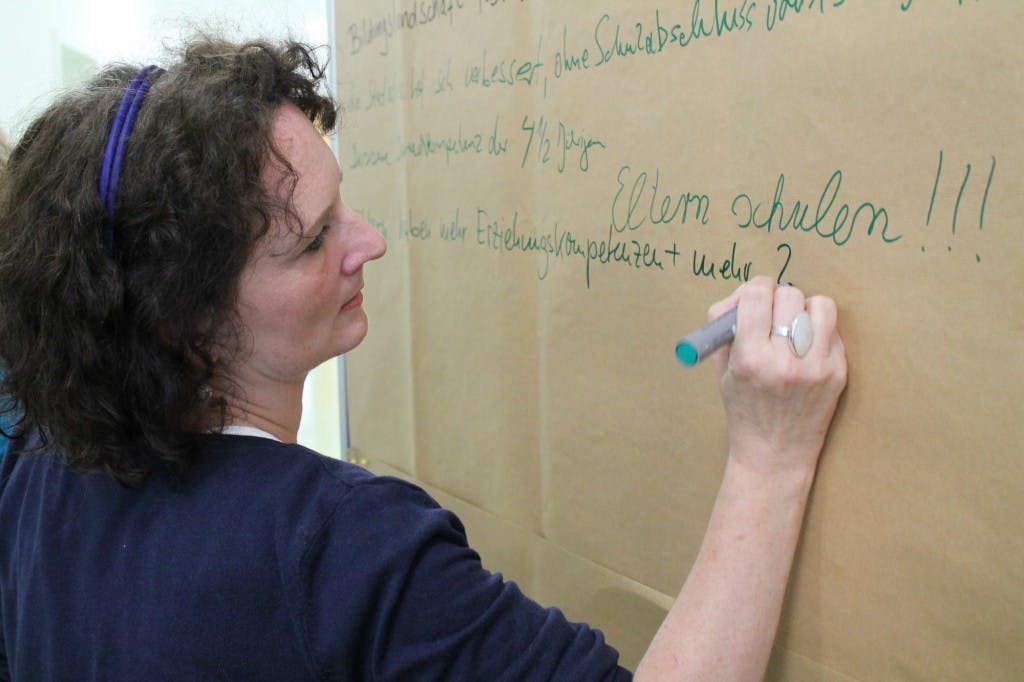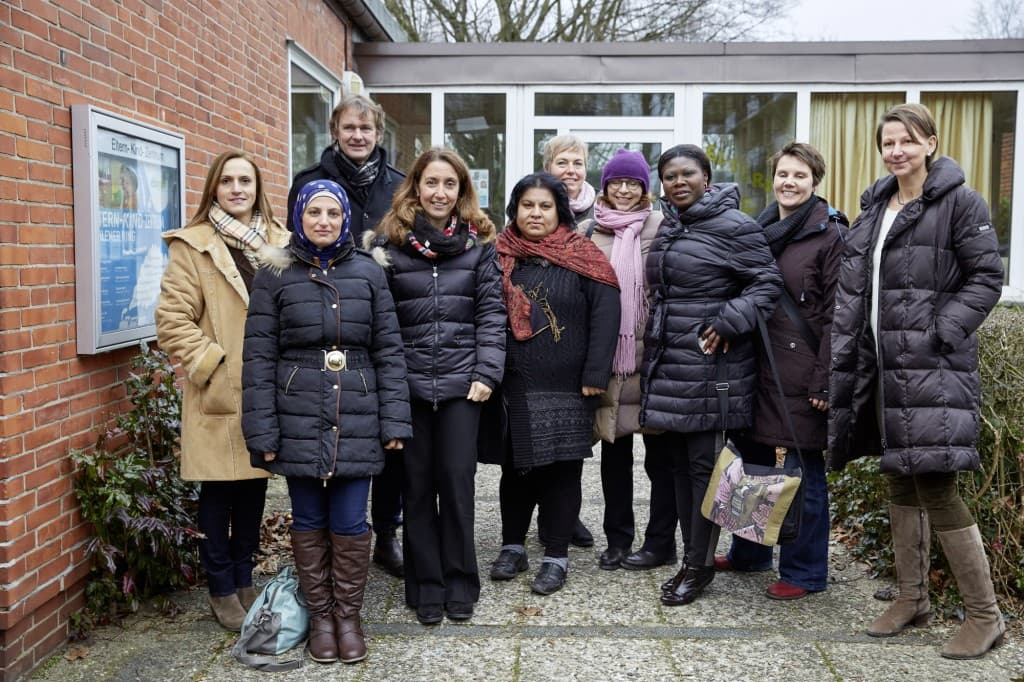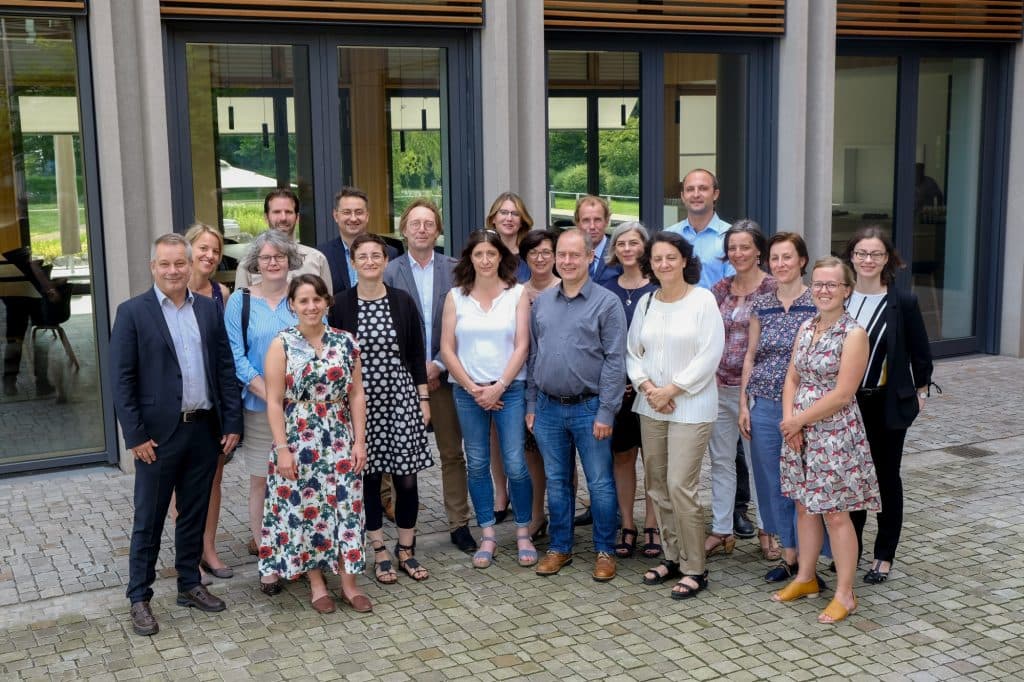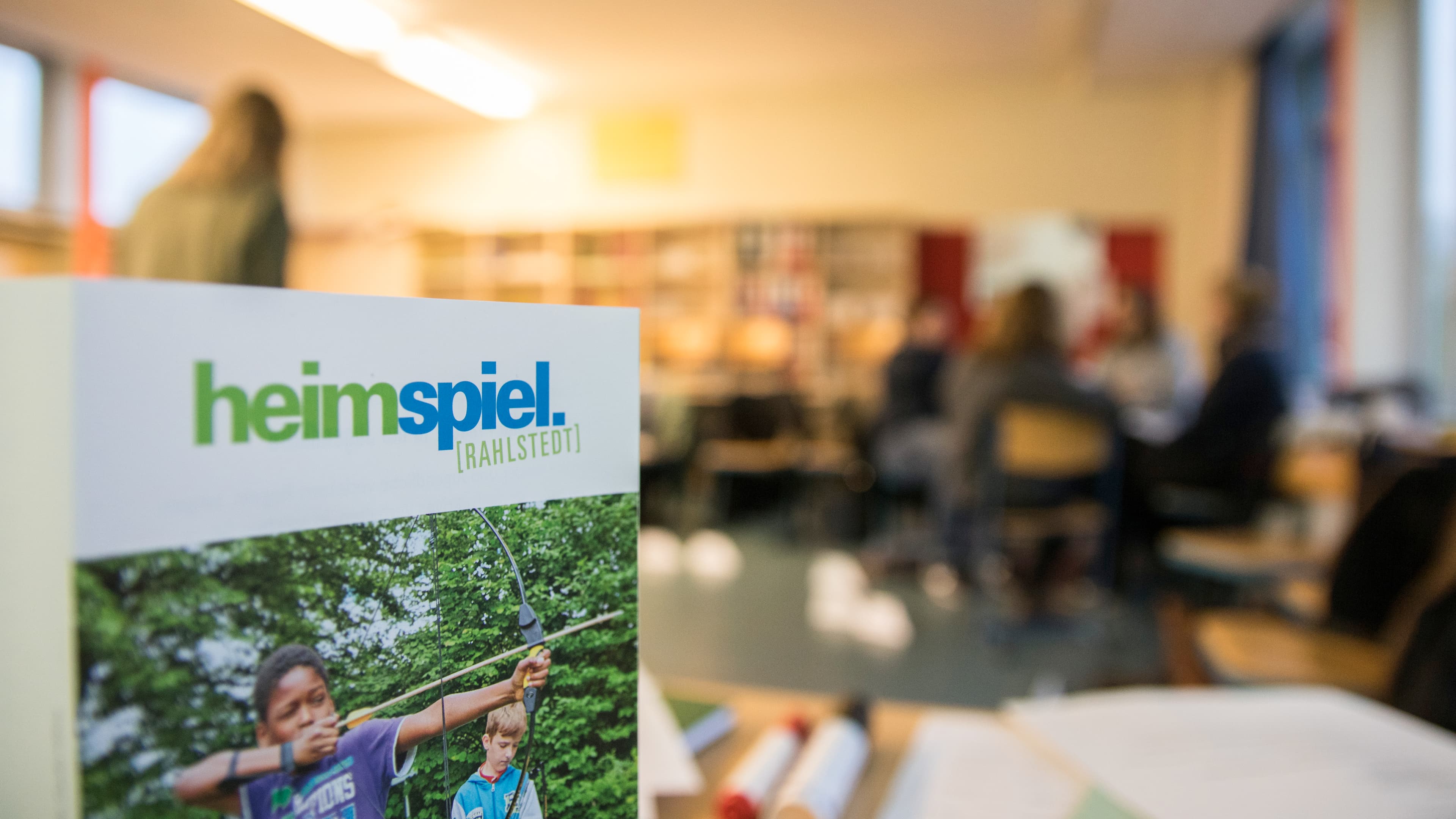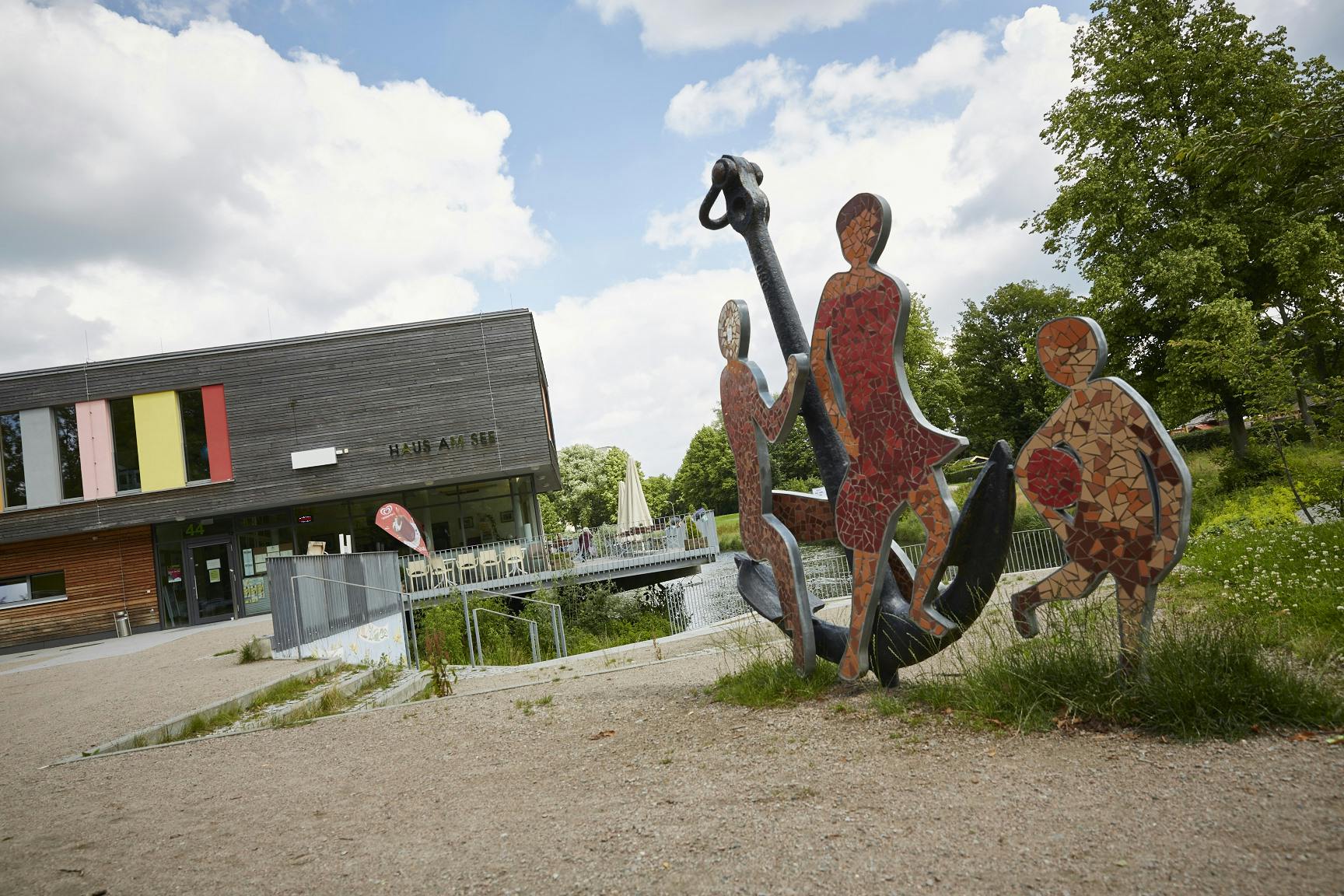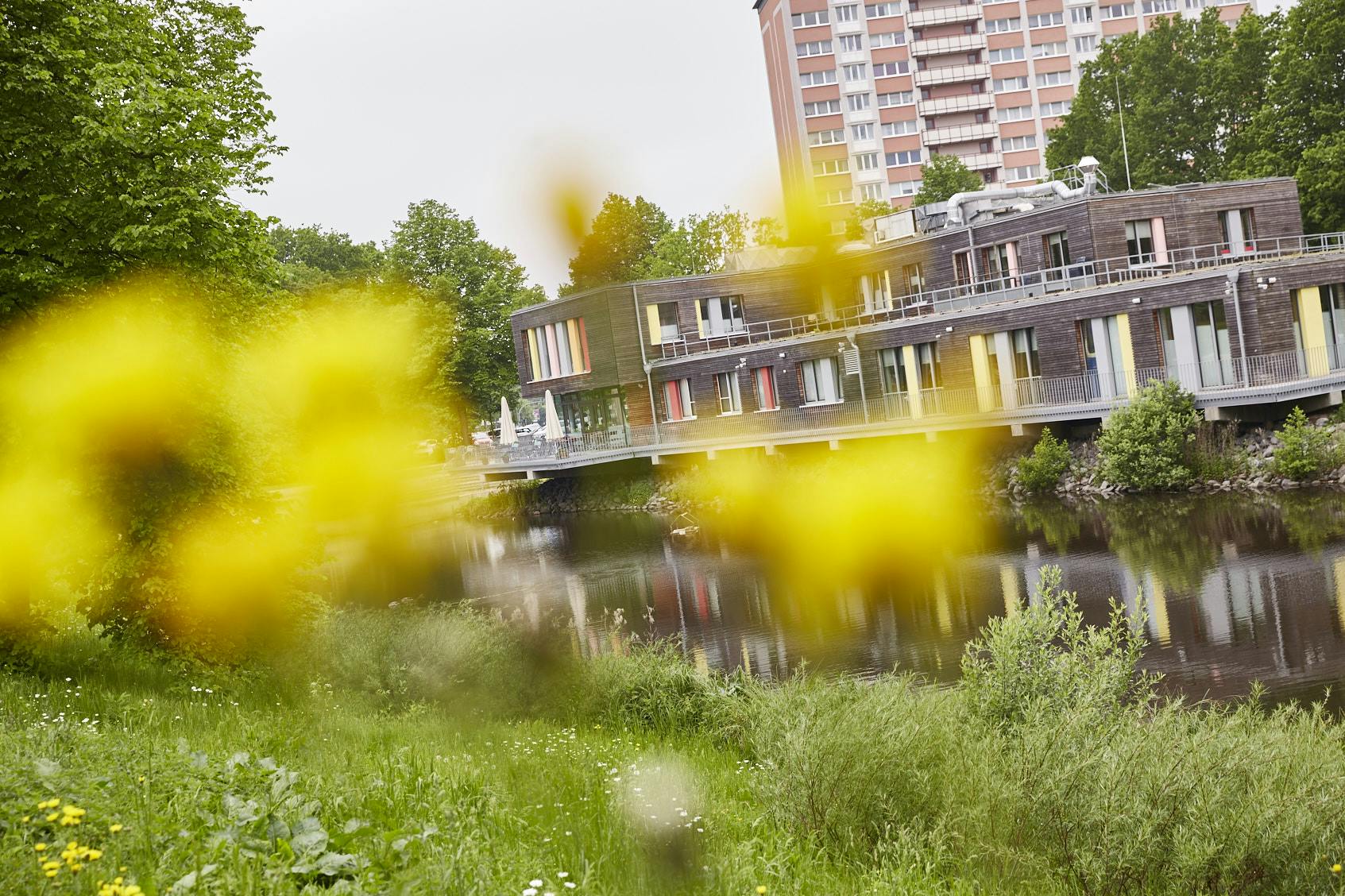What We Do
heimspiel. Für Bildung
With the project “heimspiel. Für Bildung”, the Joachim Herz Foundation and the Alfred Toepfer Foundation F.V.S. are helping to make education a joint task. Their common concern is to provide the best possible support for children and young people on their way to graduating from school and into professional life.
To this end, the two foundations have been involved in the Hamburg neighbourhoods Hausbruch/Neuwiedenthal (Harburg) and Hohenhorst/Rahlstedt (Wandsbek) since 2012 and in Billstedt (Hamburg-Mitte) since 2016. With a duration of ten years per neighbourhood, "heimspiel" strengthens cooperations between local educators and the establishing of reliable partnerships. The aim of the project is to address structural obstacles in the educational landscape and to help increase participation in education, as well as reducing the percentage of young people without a school-leaving certificate.
As in many German cities, Hamburg also shows that opportunities for social participation are distributed differently across neighbourhoods. High levels of social segregation and poverty concentration in neighbourhoods increase the risk of multiple social disadvantages for local children and their families, which harms their opportunities for participation in society. Socially disadvantaged neighbourhoods are often characterized by a high density of industrial and commercial buildings, low utilization of social infrastructure (e.g., health care facilities and cultural offerings) and poor connections to local public transportation.
In order to support the work of teachers, educators, social pedagogues, volunteers as well as local management, "heimspiel" makes numerous offers. We provide training courses tailored to local needs, award financial grants for projects and support networking, especially in the areas of social skills, parental cooperation and educational transitions. Under the title "Jeder Schultag zählt – Strategien gegen Scheitern," the Joachim Herz Foundation and the Toepfer Foundation have also been cooperating closely with the Carl von Ossietzky University of Oldenburg since 2019 and are supporting selected schools at the "heimspiel" locations in strengthening the participation of their students and reducing absences.
- Training program 2021/2022
Local and cross-professional education offerings:
For the school year 2021/2022, "heimspiel. Rahlstedt" offers local training courses for extracurricular and school professionals from the pedagogical field. More information about the events can be found in the current flyer.
- Cooperation partners
- Downloads
- Training program "heimspiel. Rahlstedt" 2019/20
- District guide Hohenhorst 2015
- "heimspiel " flyer 2014
- Report "The "heimspiel. Hohenhorst" starts into its 3rd year"
- Interview with the project “Nachbarschaftsmütter”
- Report on the certificate handover of the “Nachbarschaftsmütter”
- "heimspiel " study 2013
In its conceptual orientation, the project is based on local references and the needs of local experts. The long-term commitment of the foundations is primarily local, specific and participatory.
To achieve this goal, the foundations use the socio-spatial approach to education in their operational work. It is not the quantity of educational institutions in a district that is decisive for the educational participation of disadvantaged children and young people, but the qualitative cooperation between them. Understanding and developing the social space as an active learning space includes both formal and non-formal educational services, counselling centres, youth centres and much more.
The Hamburg Ministry of Education and Vocational Training, the Ministry of Social Affairs and the district authorities of Hamburg-Mitte, Harburg and Wandsbek are central cooperation partners of "heimspiel". They provide a teacher and a district office employee for each of the three locations on an hourly basis to supplement the foundations' project teams with expertise from the districts.
heimspiel subprojects
- Every school day counts – Strategies against failure
How can measures against truancy be developed jointly?
Every year in Hamburg, an average of between five and seven percent of students leave school without a diploma. In some districts, the proportion is significantly higher. One of the main causes is what is known as absenteeism - students only show up for classes irregularly, often as early as elementary school age. The project "Jeder Schultag zählt – Strategien gegen Scheitern" is developing concrete measures against truancy at four schools in Hamburg's districts Neuwiedenthal and Rahlstedt to prevent students from dropping out of school later.
From Rahlstedt, the Großlohering elementary school and the Altrahlstedt elementary and district school are participating in the project, which will initially run until the end of 2022. After an initial analysis of the situation at the participating schools, suitable steps against truancy will be developed and implemented in dialog with the schools. The impact of these measures will then be scientifically reviewed and monitored so that they can be immediately adapted and improved as needed during the ongoing process. The project is initiated and funded by the Joachim Herz Foundation and the Alfred Toepfer Foundation F.V.S.; it is managed and implemented by educational researcher Professor Heinrich Ricking of the Carl von Ossietzky University in Oldenburg. The Hamburg Authority for Schools and Vocational Training is a cooperation partner.
- Digital lecture series: Science in the arena of practice
Digital lecture series on current educational research: With the digital format "89 Minutes: Science in the Arena of Practice," we present current scientific study results on the effects of the corona pandemic on children and adolescents. The series aims to outline current scientific findings for professionals to support the transfer of knowledge from science to practice in the fields of education, parenting, and counselling.
- The language support network "heimspiel. Rahlstedt"
The language support network addresses the need for professional exchange and cooperation among language support staff in the Rahlstedt district. The network, which has been in existence since 2015, meets twice a year with the goal of both facilitating an exchange of methods, needs, and ideas as well as improving cooperation among language support staff from daycare centres, preschools, and elementary schools. "heimspiel. Rahlstedt" takes over the coordination and support in this context in order to strengthen the structural framework of the exchange.
Contact

